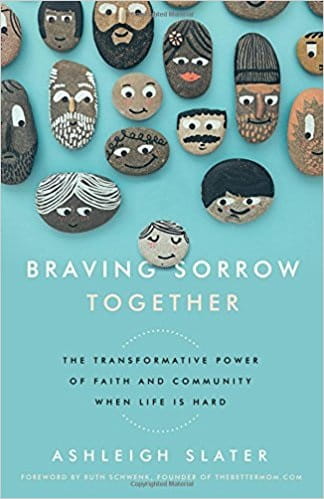3 Ways to Navigate the Stages of Grief

When my husband Ted’s dad was diagnosed with a terminal brain tumor, I held my breath and waited to see how Ted would react.
You see, I wondered if he’d experience the five stages of grief: denial, anger, bargaining, depression, and acceptance. He hasn’t always.
Several years earlier, we’d lost a preborn baby to miscarriage. Ted’s grieving process then seemed to fast-track to acceptance. A few months later, though, when his job was a reduction-in-force causality, I witnessed him painfully hit each and every stage of grief, in its prescribed order.
When it comes to mourning, I’ve noticed something similar about myself.
Different losses – whether it’s the death of a loved one, the loss of a job, saying goodbye to a well-loved home or closely-held dream – evoke varying responses from me too, depending on how life changing they are. Sometimes depression comes before anger and, many times, I skip the denial phase altogether.
When Your Grief Doesn’t Follow a Prescribed Order
As Ted and I have faced sorrow over the years, we’ve learned that our individual grief processes are often unpredictable.
Grief experts, such as author David Kessler, attest to the fact that the five stages of grief aren’t a precise “science,” so to speak, of exactly what we will feel in the wake of loss. We may not experience each step and, even if we do, they might not be in the listed order. Rather, being aware of these stages of grief are helpful to all of us in better identifying what we may feel and recognizing these emotions if they come.
Whether our individual stages of grief are textbook or not, what are some ways we can navigate them? Here are some principles that have been helpful to me in my own grief.
1. Surround Yourself with Trusted Community
As I mourn, I’ve realized how important it is to reach out to my trusted community. For me, this is normally one or two individuals are who are already in my close circle of family and friends.
They allow me to cry and to express my uncensored feelings without judgment or correction. They don’t offer me advice or rush my grieving, but instead simply listen well and provide practical help when I need it.
I encourage you to bravely reach out to your community too. Make a mental list of one or two individuals that you not only trust, but are confident will lovingly support you. Then, invite them into your sorrow.
2. Allow Your Process to be Unique
I grieved our miscarriage deeply and openly. In fact, I vulnerably blogged my pain, as well as included our three other children in the grief process. Yet I have friends who have very privately mourned the death of their preborn babies, which has included not telling their small children.
The fact is, one of us wasn’t right and the other wrong in how we approached our sorrow. We both mourned a similar loss in very different, but still healthy ways, and that’s okay.
When you’re navigating sorrow, be careful not to compare the way you grieve with that of others. Instead, allow your process to be unique and true to how God has wired you.
3. Be Patient with Yourself
Sometimes others have been ready for me to move on to the acceptance stage before I’m ready myself. There have been moments when this has left me feeling pressured to pretend I’m okay when I’m not.
Yet, as I talk about in my book Braving Sorrow Together, grief isn’t a process to rush. Instead, it’s important that I’m patient with myself and how long I need to linger in a particular stage of grief.
I encourage you to do the same. Don’t feel the need to move on before you’re ready. At the same time, also be aware that you’re grieving in a healthy manner. If you’re concerned that you’re not, talk to your trusted community and ask for help.
Navigating the Long Valley of Grief
It’s been over a year since Ted’s dad said goodbye to us and hello to heaven. I’ve watched as Ted’s grief process hasn’t fit the mold. He hasn’t neatly walked through each of the five stages of grief.
Grief is, as C.S. Lewis wrote, “like a long valley, a winding valley where any bend may reveal a totally new landscape.” And for each of us, this landscape may not be identical, and that’s okay.
Photo courtesy: ©Unsplash

Originally published October 17, 2017.




